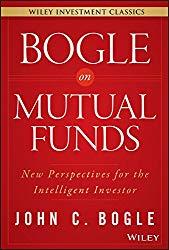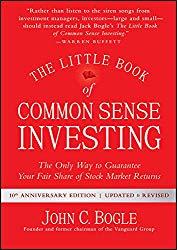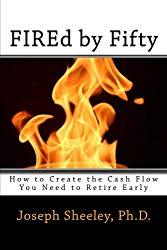Things are getting kind of scary out there. With the possibility of a trade war, stocks have been heading down for a while and may have a ways to go. The way that you act during bear markets is probably more important than how you act during bull markets when it comes to maxing out your returns. Everyone does well in a bull. Most really big mistakes are made when you’re in the jaws of a relentless bear market. They are also when you set yourself up to make the biggest gains. Here are some things to consider if you find yourself staring down a market correction, or even a full-fledged, snarling bear.
(Note, if you click on a link in this post and buy something from Amazon (even if you buy something different from where the link takes you), The Small Investor will receive a small commission from your purchase. This costs you nothing extra and is the way that we at The Small Investor are repaid for our hard work, bringing you this great content. It is a win-win for both of us since it keeps great advice coming to you (for free) and helps put food on the table for us. If you don’t want to buy something from Amazon or buy a book, how about at least telling your friends and family about our website as a great place to learn about investing and personal finance. Thanks!)
Don’t Panic.
People lose money during bear markets because they get scared and sell out. Once you’ve sold, your losses are locked in and you have no way to recover your money. Just follow the advice from The Hitchhiker’s Guide to the Galaxy
When you panic, you do dumb things like sell all of your shares just as the market is bottoming out and miss out on the big rally that follows. Or you stop investing entirely for a while and lose years of gains. Just remember that most markets recover and then head for new highs within a year or two after a big fall. If you need to, there’s nothing wrong with just turning off your broker’s web ap and ignoring your statements for a while. Things will recover and there’s really nothing for you to do.
Buy More
Your instincts may be telling you to pull some money off of the table and cut your losses. Ignore your instincts. Realize that the horses have been stolen, no reason to lock the barn door now. The damage has been done.
The best thing that you can do during a bear market is to buy more shares. If you’re investing regularly, which you’re doing, (right?) just keep following your regular routine. If you use auto draft to invest from your checking account or your paycheck, just leave the automation in place. If you have money coming out of your paycheck to go into your 401k, keep it flowing.
Realize that you’re buying more shares because the prices are lower. This means that when the markets come back, you’ll be making even more. Also realize that it will take less time to recover if you keep buying more since you’re getting shares at a lower price, bringing the average amount you paid, called your cost basis, down. If you had dumped a bunch of money into the markets right before the stock market crash of the Great Depression, it would have taken about 15 years just to get back to even. If you had kept investing, however, you would have made a killing and been way ahead by the time you passed the 15-year mark.

Beware of trying to catch a falling knife
Just because the markets have gone down and shares are selling for less than they were a day, week, or month ago doesn’t mean that they will go up tomorrow. The hallmark of a bear market is that it has at least two major downward movements. (A correction, on the other hand, has only one major downward move before it starts to recover and goes to new highs.) You may very well think that things have hit a bottom and feeling good to see your shares rising again, only to see the floor fall out again.
The market phrase for trying to buy shares when they are on the way down is to catch a falling knife. As the saying implies, it is difficult to do and may very well result in you being cut. When shares have fallen in price, they are certainly not going to fall as far as they did before the sell-off happened because they are now closer to a reasonable price. Realize, however, that people get unreasonable when they are losing money and stocks often go down a lot farther than they should based on fundamentals. Just accept that, whatever price you pay, the shares will probably go lower. If you have more money to invest, go ahead and buy more when they do. If you’re out of cash, just sit tight and wait.

Don’t second guess your investments based on performance during a bear market
A fundamental feature of a bear market and an economic recession that often follows is that all stocks, good and bad, fall together. If you’re buying individual stocks, don’t see a loss in your portfolio and assume that it means you made a bad investment. If it is a good stock, it will recover once the bear market ends and possibly even pick up market share from weaker competitors that fail during the recession.
On the flip side of the coin, just because shares of a stock fall during a bear market does not mean that you should pick up more of that particular stock. Sometimes companies do have real issues that get revealed during a recession. Take a look at the fundamentals of the company and see what is happening with earnings. If they continue to be healthy, picking up more shares cheap may make sense. If they start to stall, however, and that stall continues as the economy recovers, you may want to close your position.
If you are buying only mutual funds, particularly index funds, don’t look at their performance and make changes. You should be buying funds solely based on allocations of your money to specific areas of the market and the cost of the funds. You want to find funds that put your money in specific areas of the market like large-caps, small-caps, income investments, and so on. Each of these segments will outperform the others during different periods over time. Just because one did better last year does not mean it will do so again. In fact, the chances that it will continue to outperform declines after each period when a given sector leads the pack since that sector of the market is becoming more expensive relative to the other market segments.
If you pick funds because they’ve not gone down as badly during a bear market as other funds, you may end up in a fund that is too conservative and doesn’t do as well as the others during the recovery. (Note that if you pick funds that do well in a bull market, you’re probably buying shares that have already gone up and are buying high. Very few funds that are at the top of their segment one period will be there during the next.) Picking funds that have 5-star ratings is one of the worst strategies since it means that you are always buying the funds that are most inflated.
Learning more
To learn a lot more about investing and managing your finances, check out my books, SmallIvy Book of Investing: Book 1: Investing to Become Wealthy and FIREd by Fifty: How to Create the Cash Flow You Need to Retire Early. The SmallIvy Book of Investing provides information on how to determine risk when investing, then goes on to provide strategies for investing with both individual stocks and mutual funds. FIREd by Fifty provides a great deal of information on investing with mutual funds, including mutual fund portfolios you can use to generate income when you’re retired or need cash from your portfolio for some other reason.


Have a burning investing question you’d like answered? Please send to[email protected] or leave in a comment.
Follow on Twitter to get news about new articles. @SmallIvy_SI
Disclaimer: This blog is not meant to give financial planning or tax advice. It gives general information on investment strategy, picking stocks, and generally managing money to build wealth. It is not a solicitation to buy or sell stocks or any security. Financial planning advice should be sought from a certified financial planner, which the author is not. Tax advice should be sought from a CPA. All investments involve risk and the reader as urged to consider risks carefully and seek the advice of experts if needed before investing.

